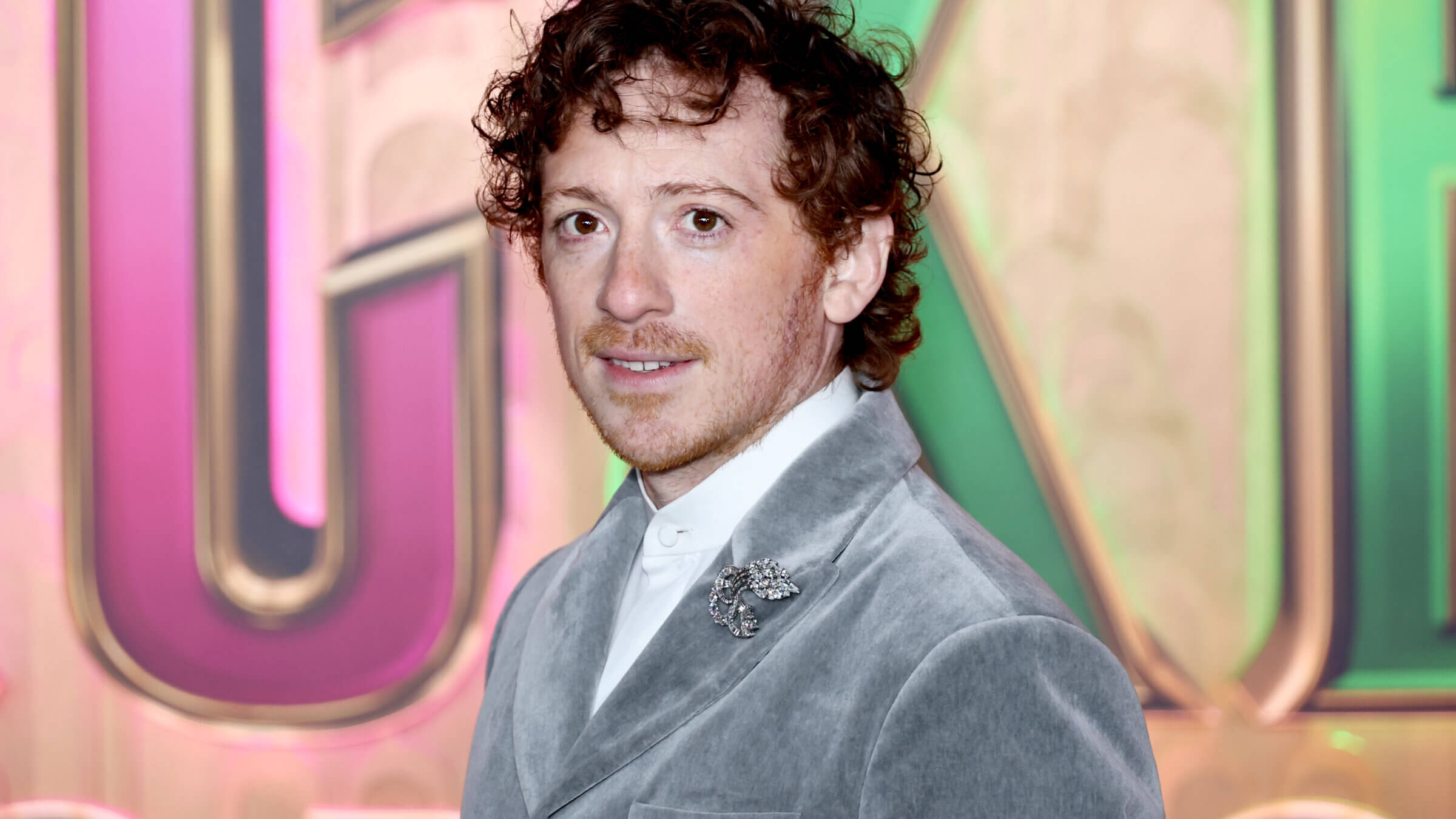The ‘Wicked’ Munchkins seem pretty Jewish this time around
The musical sequel recalls Nuremberg Laws in a scene added for the film

Ethan Slater plays Boq, and inspired the look of the Munchkins in Munchkinland. Photo by Jamie McCarthy/Getty Images
First they came for the animals, and I did not speak out, for I was not an animal. Then they came for the Munchkins — the trade unionist lollipop guild was not exempt.
Wicked: For Good, the second and purportedly final installment of the big screen adaptation of the blockbuster musical, is puffed up with a fair amount of additional material. Stephen Schwartz penned new music. The role of the cowardly lion has been expanded (and is voiced by Colman Domingo). And, in a sequence that recalls countless Holocaust films, a character tries to depart from a train station, only to be turned away by a uniformed official.
When the character Boq arrives, he sees notices posted, expanding previous travel restrictions on Oz’s animals to Munchkins.
“This is not Ozian,” a Munchkin mother can be heard objecting. As a full citizen, she is shocked, as so many Weimar Jews were, by the sudden curtailment of her rights.
Wicked, based on Gregory Maguire’s novel, which is in turn based on one of the most visible franchises in film, was always a metaphor for fascism and a plea for tolerance. Producer Marc Platt, on his son Jonah’s podcast, said he saw the project as an extension of his Jewishness and that, in development, the creative team “looked back at the Holocaust a lot.”
In the stage musical, the metaphor is mostly carried by the animals, most notably Doctor Dillamond, a beloved (scape)goat professor who, like so many Jewish academics under the Nuremberg Laws, was stripped of his post. Dillamond is literally silenced, robbed of his ability to speak. In the film, some still-verbal animals are seen escaping through a kind of Underbrick Railroad, recalling escaped enslaved people or contemporary migrants or refugees.
In the Broadway show, Boq is also forbidden to leave, but that’s only alluded to in dialogue. It’s due to the caprice of his jilted lover Nessarose. In the film, we glimpse the legislation’s full consequences for all Munchkins. (The fact that Nessarose, the governor of Munchkinland, is herself a Munchkin, at least in the novel, speaks perhaps to a certain “small-minded” quality her sister, Elphaba, sang about.)
As is the case with the Niemöller poem, the lesson is that fascists never stop at one undesirable target. But if you happen to feel, in your gut, that this Munchkin discrimination feels more pointedly Jewish than its animal-centric predecessor, I submit that it has much to do with the look of the Munchkins, with their red frizzy hair, being derived from Boq’s Jewish actor, Ethan Slater.
There’s only one problem with making Boq the basis for Munchkin phenotype and the greater avatar for Munchkins: He sucks.
Boq has unrequited feelings for Glinda, and only courts Nessarose to impress her. It’s his desire to stage a Graduate-style disruption at Glinda’s wedding that inspires Nessarose to shut down Munchkinland’s borders for Munchkins and so keep him close to her.
Given that his actions are a pretext for persecution of a whole people, he is, in his f-boy way, the Herschel Grynszpan of Munchkins. It doesn’t help matters that he is later seen leading a violent mob as the Tin Man.
Munchkins deserve better representation. In the inevitable film follow-up, I demand a full survey of Munchkin tradition — including Munchkin niggunim — a portrait of their resistance to the wizard’s despotism and their accomplishments in the fields of steampunk science and the Ozmanities.
The still small voice of this neglected people calls out: Everyone deserves a chance to fly.
















